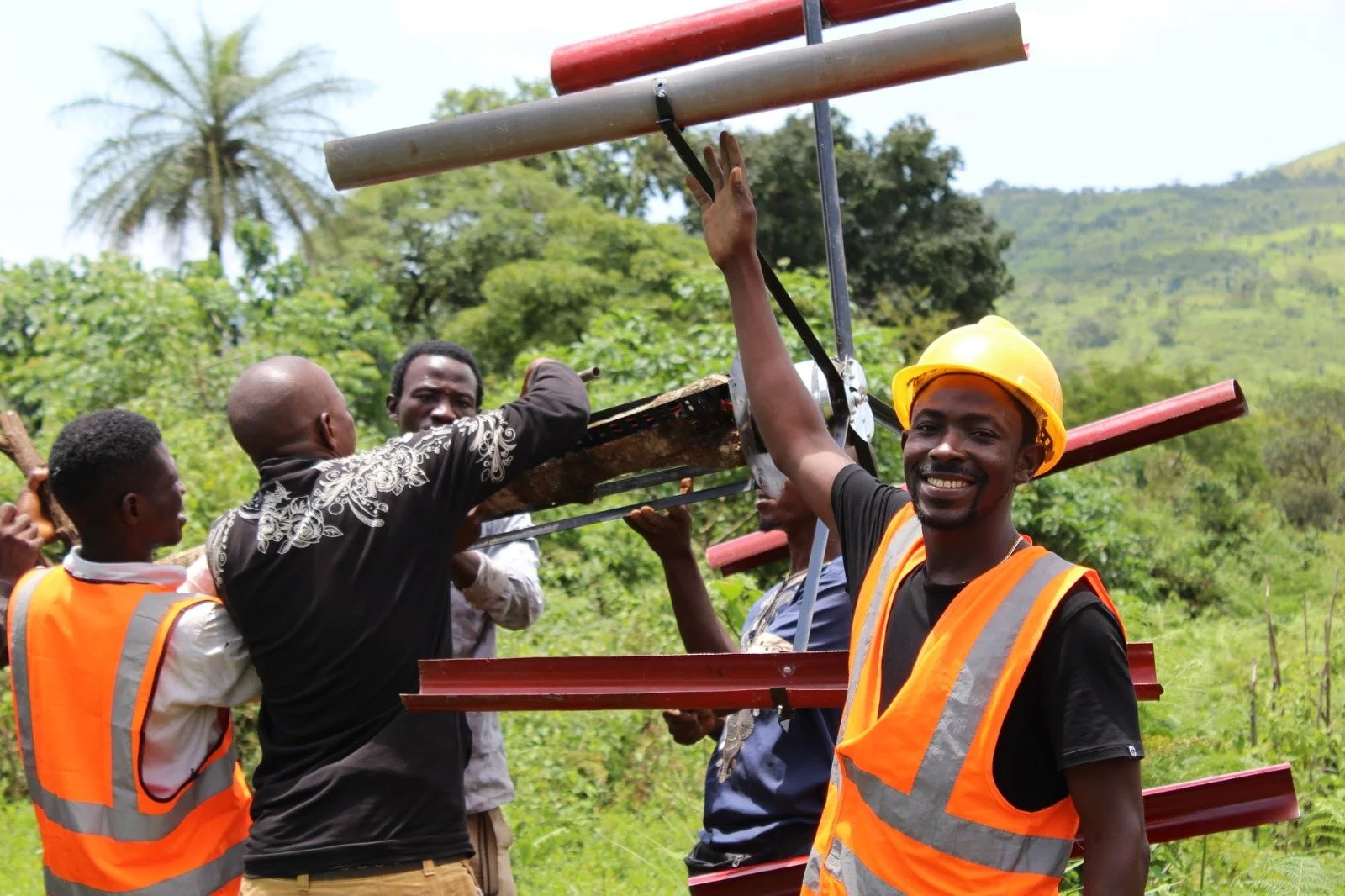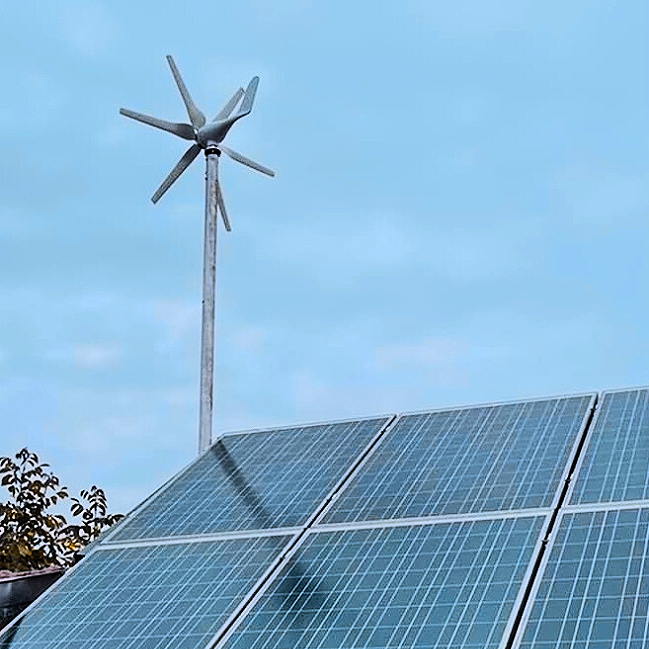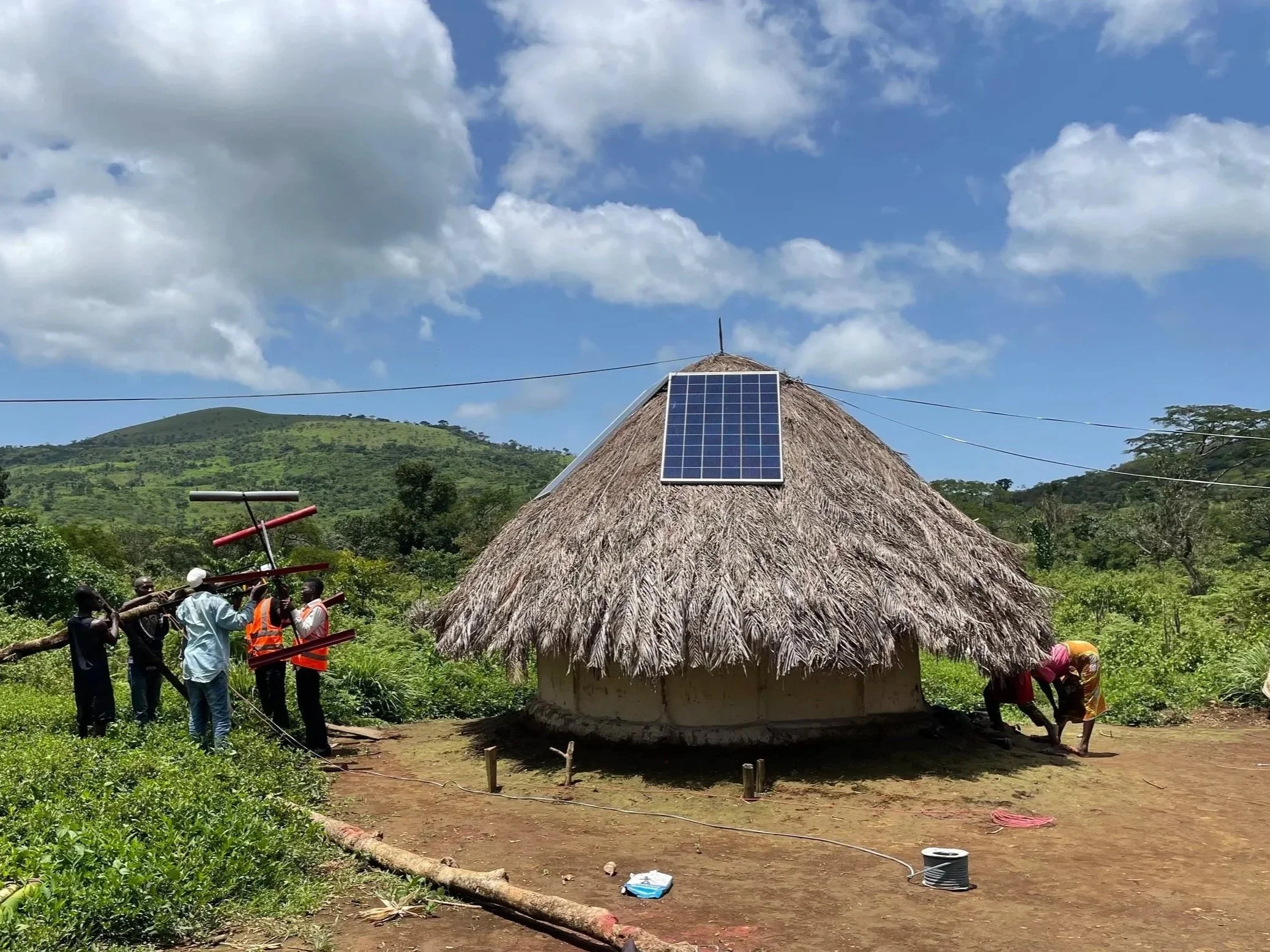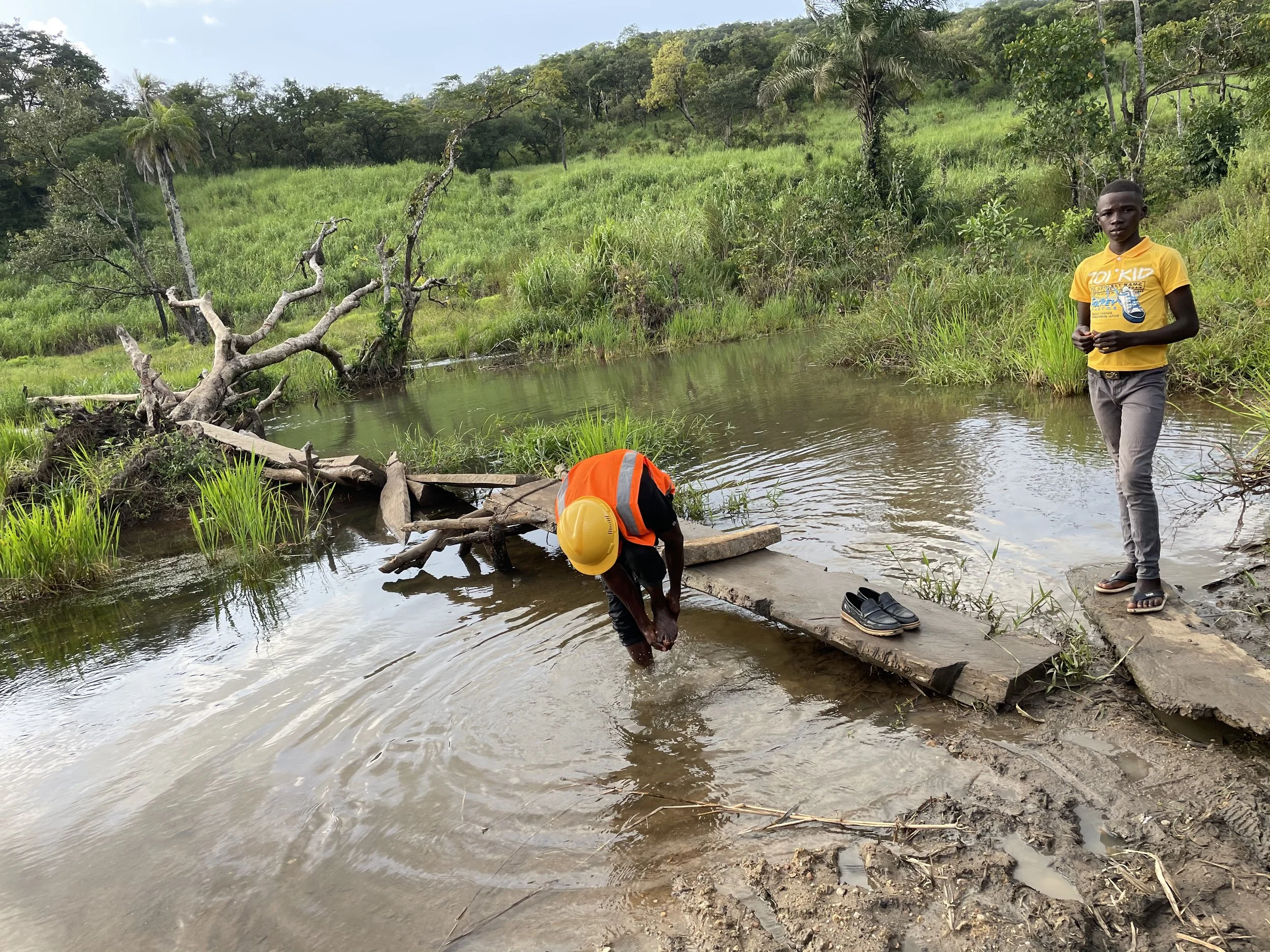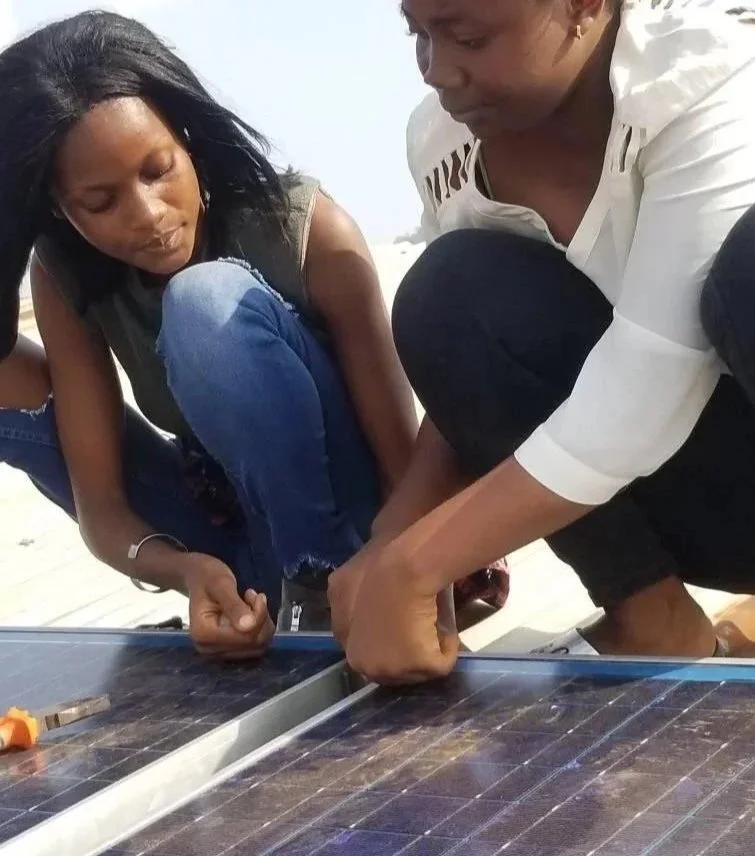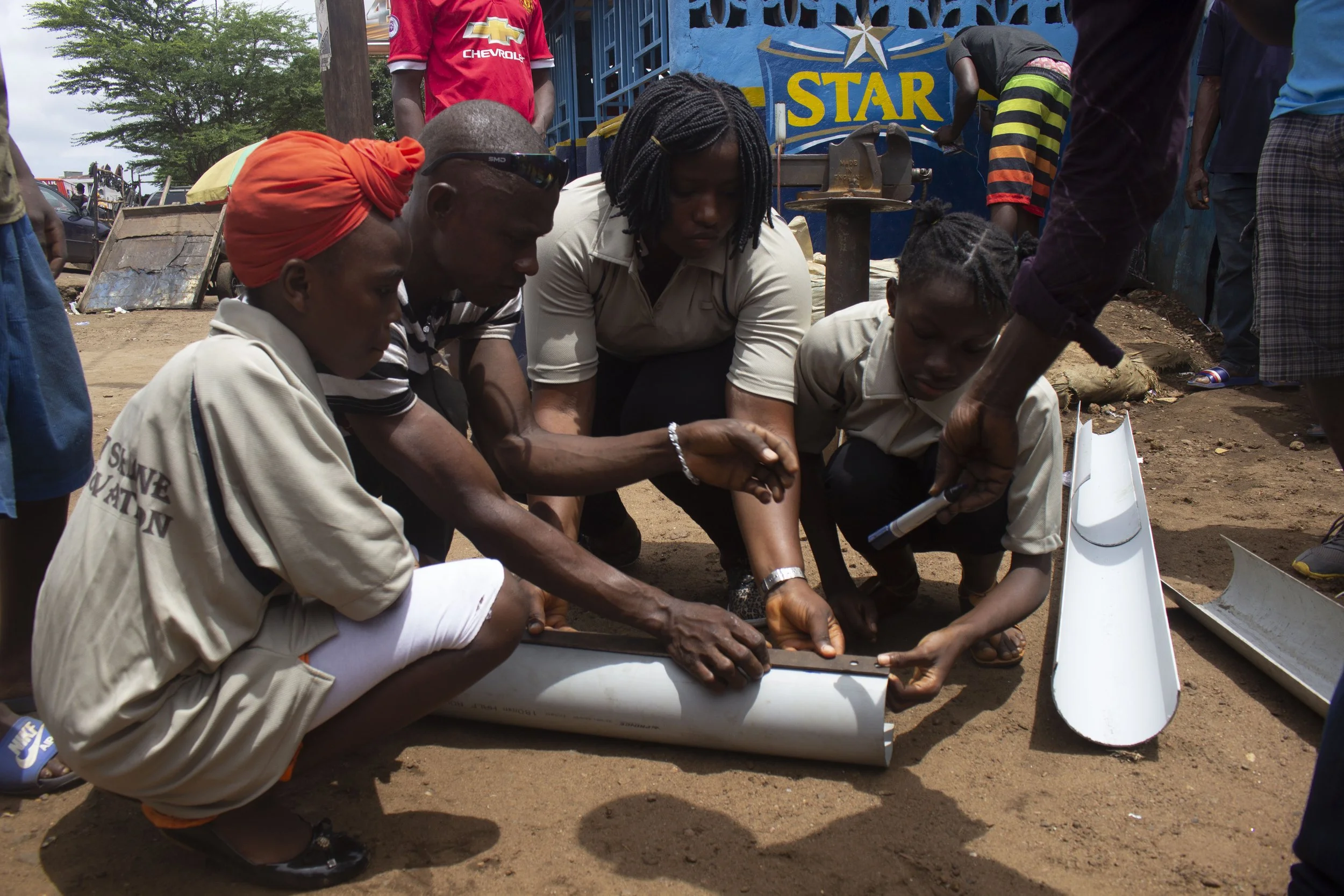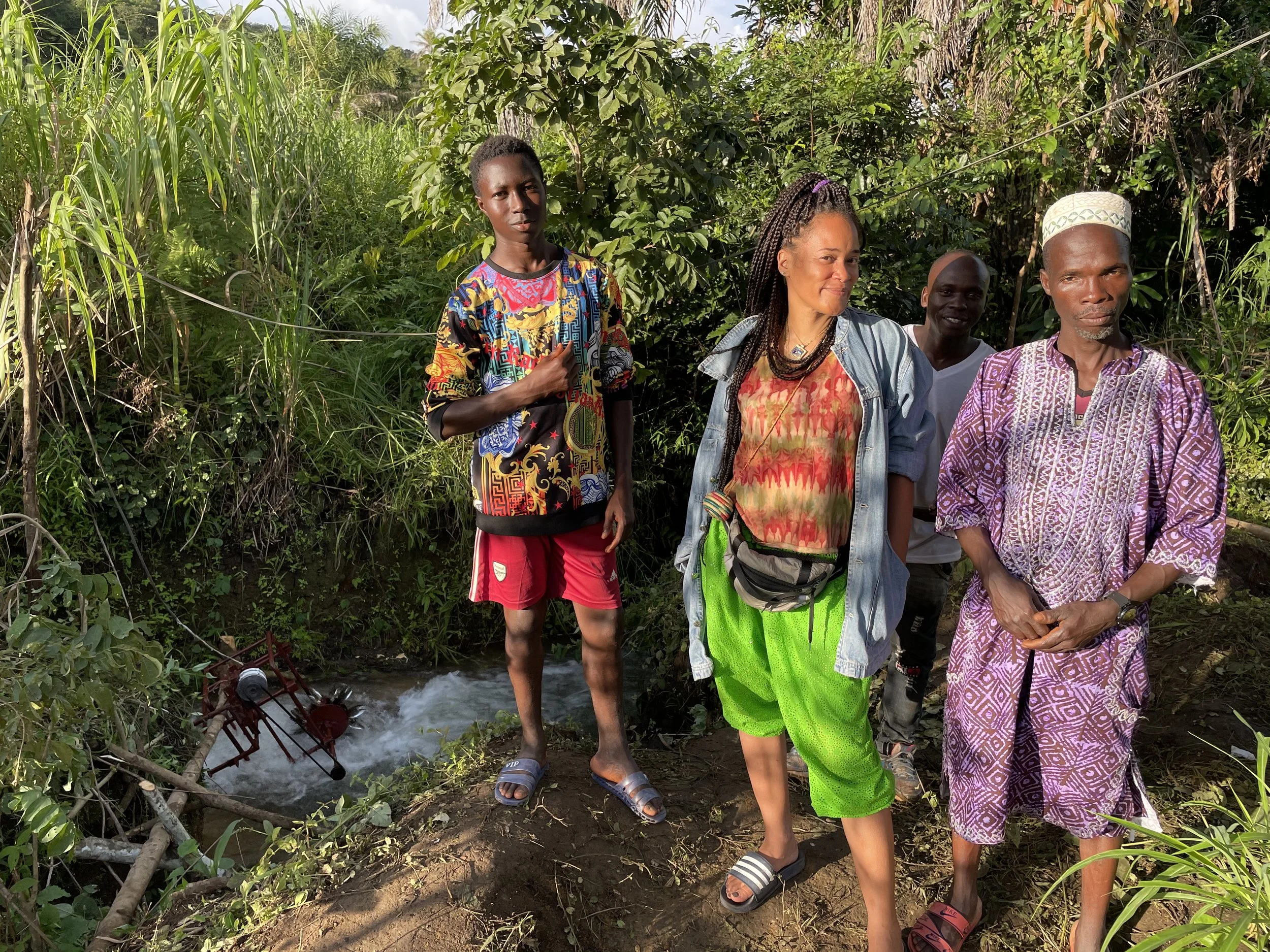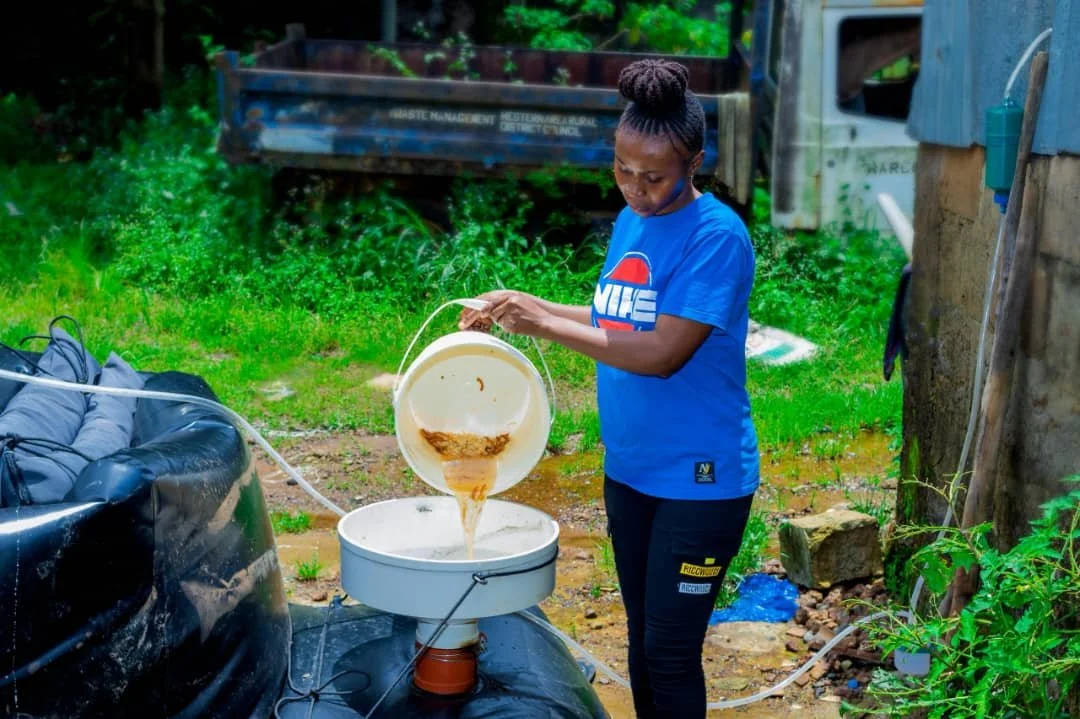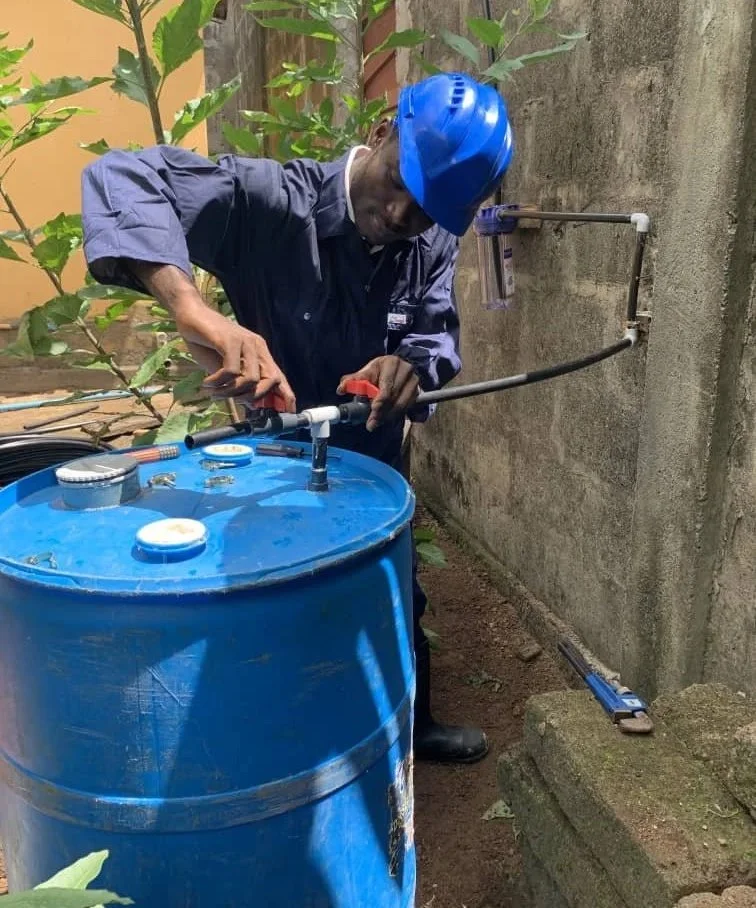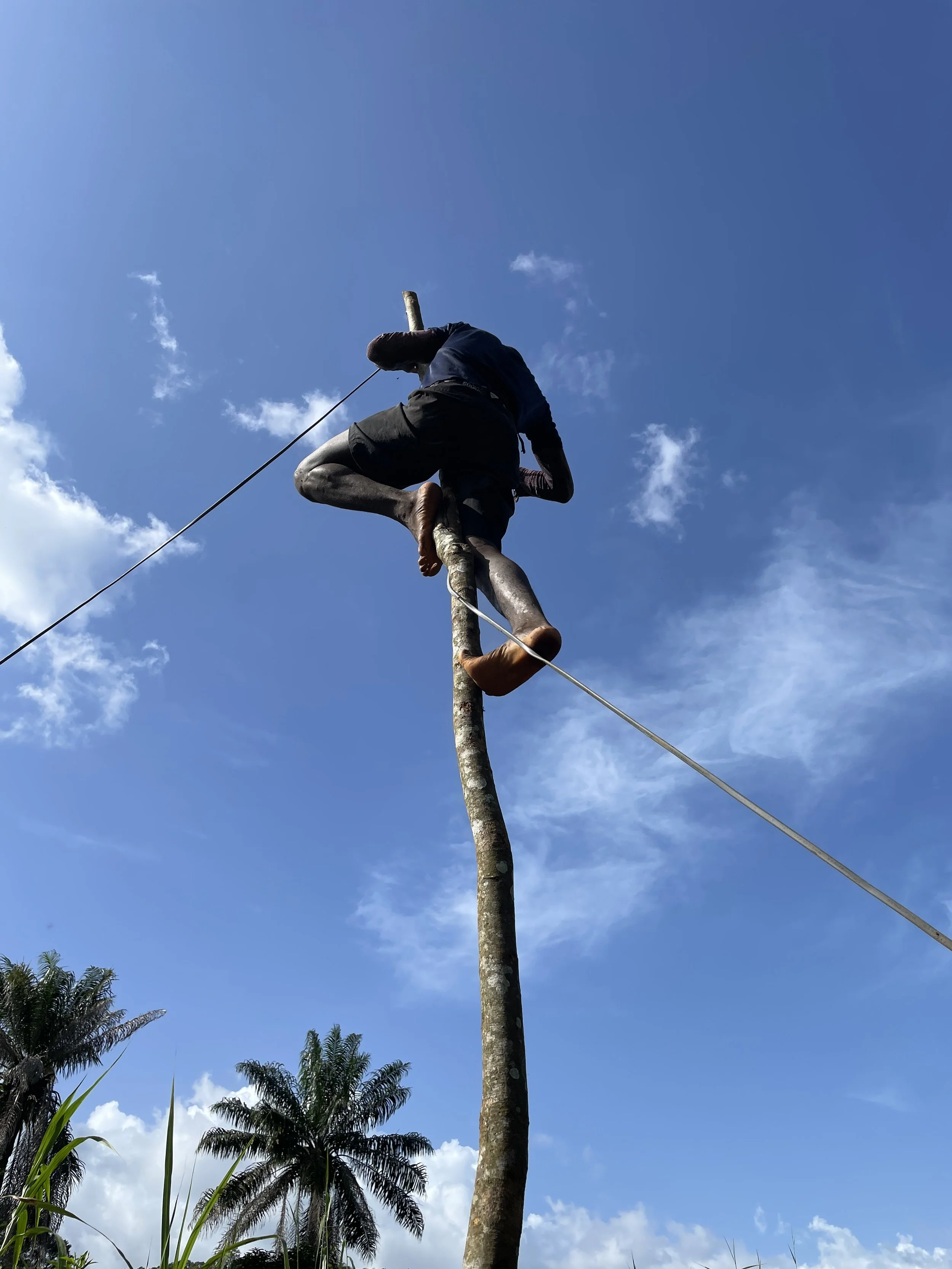
energy
is in the elements:
the water, the air, the sun & the earth.
HYBRID GREEN ENERGY SYSTEMS
Sierra Leone’s electricity coverage is 23%, with rural access being as low as 4%. This excludes nearly 7 million people from access to electricity. The lack of reliable power, undermines every sector of development: healthcare facilities cannot operate effectively, schools struggle without lighting, farm productivity is limited, small businesses are restricted and families continue to depend on unsafe, polluting fuels. Energy poverty remains a major barrier to inclusive growth.
Rural households rely on firewood, which contributes to deforestation, while kerosene or generators, running on petrol and diesel, cause air pollution. Businesses burn vast amounts of petrol every day to keep their generators running and operate their business.
Collectively, this generates an estimated 500 tons of CO₂ emission across the country contributes to climate change.
We design hybrid green energy systems, made from recycled materials, combining hydro, solar & wind. Our hybrid electricity systems, which include HYDRO°SOLAR, WIND°SOLAR and BIO°GAS energy solutions have prevented over 20 tons of CO₂ emissions, contributing to climate mitigation.
So far, we have brought green electricity to more than 10 communities and over 1000 households.
FREETOWN INNOVATION LAB locally designs and fabricates hybrid power systems, that combine wind and solar energy. The system harnesses the natural elements - wind and sunlight - to generate electricity sustainably. During the dry season, solar panels provide consistent power, while wind energy is harnessed wind during Sierra Leone’s rainy season, when cloud overcasts reduce the solar charge.
This complementary design ensures all-year-round reliability for households, businesses. The electricity generated is stored in batteries and distributed to power lighting and appliances at night. During the day surplus energy is used to power appliances or irrigation systems for gardens and farms.
Bringing WIND & SOLAR energy to remote mining communities, enables them to water their farms all year long and increase their yield, with energy powered water irrigation systems.The FEMALE INNOVATION LAB & FREETOWN INNOVATION LAB supported ETHICAL MINERALS in their initiative to empower remote mining communities through green energy.
wind ° Solar.
Currently, only about 4% of rural households are connected to the national grid, leaving millions of people without reliable power. This lack of electricity access, not only reinforces inequality, but limits opportunities for education, healthcare, business and agricultural productivity.
energy impact.
Through R&D we optimize system durability to work under sunny & windy conditions.
Thus far, we trained 100+ youths and 80+ females in renewable energy installation and maintenance. More than 10 communities have been impacted, with over 1000 households and more than 5000 people benefiting.
HIGH VOLTAGE ENERGY NEEDS.
Businesses, such as restaurants, hotels, office buildings presently incur between $5000-$10,000 cost for petrol to power their generators. ….
hydro ° Solar
Clean Energy for Every Community
These small HYDRO GENERATORS are installed in rivers, streams, and dams with high-velocity water flow, capable of generating up to 10KW of electricity.
By converting natural water flow into renewable energy, this systems provides reliable electricity to households, schools, and businesses in off-grid areas.
The HYDRO-SPOON GENERATOR can also be utilized during the raining season, by funneling water through drainage pipes to power it. It is portable and as a result versatile.
FROM SCRAP TO POWER
On site assessment, determines which hybrid solution is ideal for the given environment and weather conditions. Our Hydro Generator is a small-scale hydropower systems, made from recycled scrap materials, including turbines fabricated from table spoons and other recycled components. It is a great low cost power solution, for rural communities or houses that live close to a stream or a river.
Traditional cooking methods, that rely heavily on firewood, charcoal, and kerosene, are a major contributor to both health and the environmental crises. Globally, toxic smoke from these methods contributes significantly to CO₂ emissions, exacerbating climate change.
Bioenergy provides a healthier alternative by utilizing food waste to produce biogas for cooking. This innovation not only addresses the long-standing problem of toxic emissions but also contributes to waste management by converting organic waste into a valuable energy source.
bio energy: ORGANIC WASTE TO BIO GAS.
The biogas solution reduces dependency on harmful fuels, lowers household energy costs, and provides a sustainable pathway for reducing CO₂ emissions.
